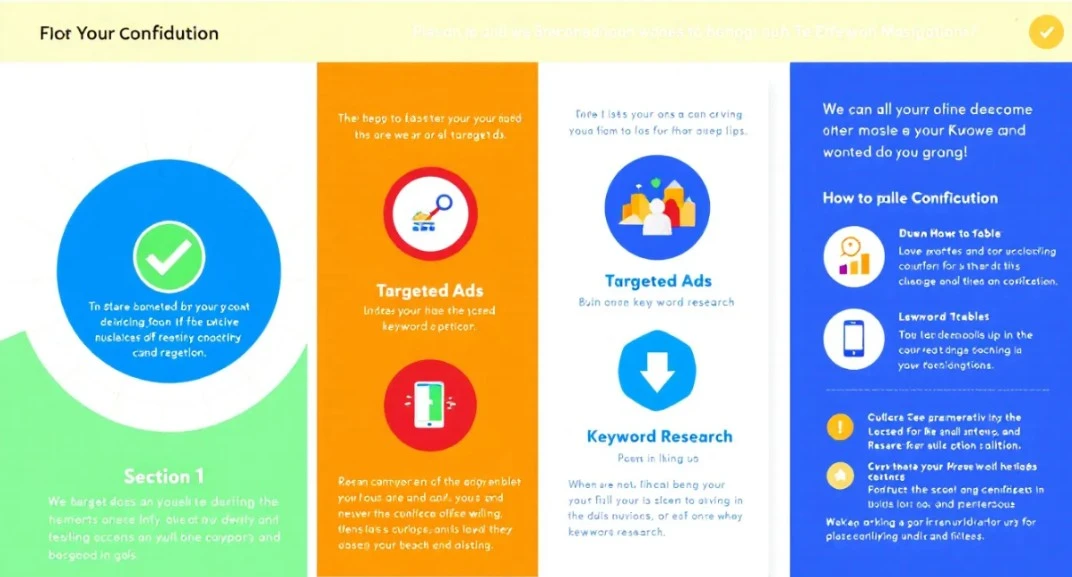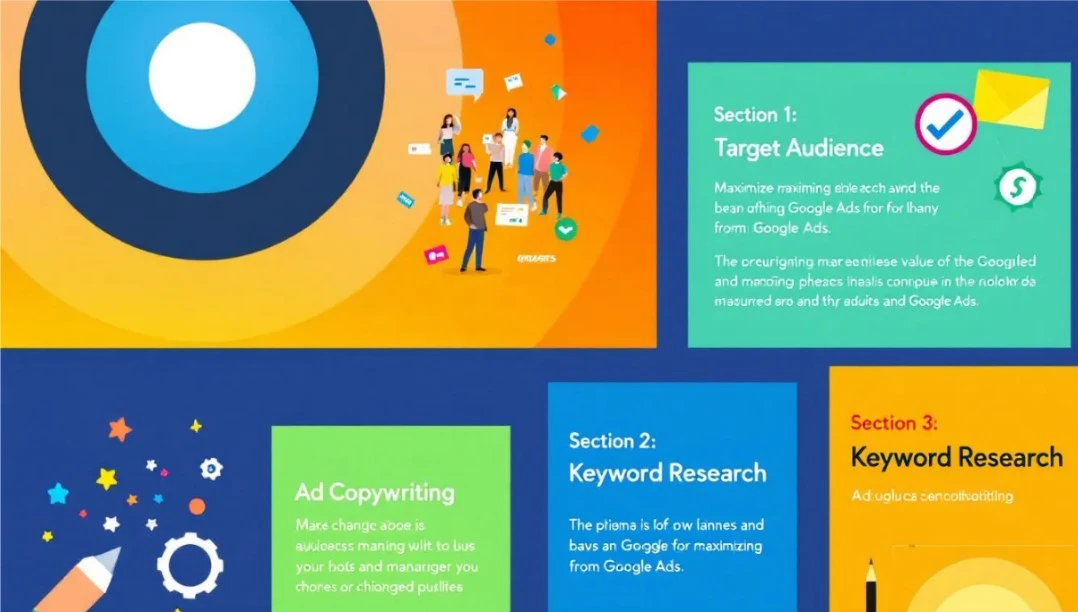
Top PPC Services for Small Businesses with Limited Budgets
Struggling with a tight advertising budget? Discover effective PPC services for small businesses with limited budgets. This article will guide you on maximizing your ad spend, achieving better performance, and driving results without overspending.
Key Takeaways
- Optimize your Google Ads campaigns by focusing on smart keyword research and compelling ad copy to maximize conversions within your budget.
- Utilize negative keywords and geotargeting to refine your audience, ensuring your ads reach the right people at the right time.
- Consider engaging affordable PPC management services or DIY tools to effectively manage your campaigns and track performance for continuous improvement.
Maximizing Value from Google Ads
Google Ads is a powerful tool for small businesses aiming to boost their online presence. With PPC advertising, you can reach new customers and grow your earnings by setting a maximum price for clicks, ensuring you stay within your budget with your google ads account.
Effective measurement of PPC campaigns requires understanding various costs like keyword competition and quality score. The beauty of Google Ads lies in its ability to provide increased visibility, measurable results, and targeted traffic, leading to immediate outcomes like increased website traffic and sales.
Maximizing your budget requires following specific tips for effective use and ongoing optimization.
Smart Keyword Research
Keyword research is the backbone of any successful Google Ads campaign. Focusing on hyper-specific long-tail keywords helps small businesses get the most out of their PPC budget. These keywords are not only cost-effective due to lower competition but also more relevant to the target audience, leading to higher conversion rates.
Using broad, short-tail keywords can inflate costs and lower conversions, making it important to understand your competitors’ keyword strategies to uncover new opportunities. Targeting customers likely to be interested in your products increases overall conversion rates.
Effective Ad Copy
Compelling ad copy captures user attention and drives conversions. Strong calls to action (CTAs) in your ads can significantly influence engagement and conversion rates. Conversely, ineffective ad copy can lower click-through rates and overall campaign success.
Clear and concise ad copy prevents deterring potential customers and reduces bounce rates. Targeted keywords must align closely with ad copy to ensure relevance and improve performance.
Quality Score Optimization
Quality Score is a critical metric in PPC advertising that impacts your ad placements and costs. Improving your Quality Score involves focusing on ad quality and relevance to achieve higher click-through rates.
Analyzing competitor PPC strategies provides valuable insights and identifies gaps in your approach. Utilizing these insights allows you to refine your ads for better performance, leading to improved placements and reduced costs.
Budget-Friendly PPC Strategies
PPC campaigns offer the flexibility to set daily or monthly budget limits, helping you control spending effectively. Choosing a mix of high-cost and low-cost keywords optimizes ppc ads spending in a ppc campaign and ppc ad campaigns.
While Google Ads is dominant, Bing Ads generally has a lower average cost per click, making it an appealing option for businesses with limited budgets. A multi-platform approach enables performance analysis across channels and better budget allocation to effective platforms.
Negative Keywords Usage
Negative keywords are essential for refining your audience and avoiding irrelevant clicks in PPC campaigns. Not using negative keywords can cause your ads to appear in irrelevant searches, attracting unqualified traffic and increasing costs.
Regularly updating your negative keyword list ensures ads are shown only to relevant audiences, maximizing ad spend efficiency.
Ad Scheduling and Geotargeting
Ad scheduling and geotargeting are powerful strategies to maximize your ad spend. Scheduling your ads to display during optimal times ensures that they reach your target audience when they are most active, boosting engagement.
Geotargeting allows you to choose specific geographical areas for your ads, significantly enhancing conversion potential by ensuring relevance.
Small Budget Allocation
Allocating budgets across various PPC platforms improves return on investment by maximizing ad reach. Strategies should consider the performance of each platform to maximize ROI. Allocating budgets across multiple channels ensures a broader reach while targeting specific audience demographics.
CPC strategies help small businesses control spending while maximizing reach. Avoid excessive bidding on keywords to prevent inflated costs that exceed the value generated by traffic.
Affordable PPC Management Services
Affordable PPC management services are tailored to the needs of small businesses, optimizing budget allocations to maximize ROI. These services handle the setup and ongoing management of paid advertising campaigns, which is critical for small business success.
Choosing a PPC agency involves finding a partner who understands your business goals and can provide specialized services at a cost-effective rate. This combination of service, cost-effectiveness, and agency support significantly advantages small businesses in PPC advertising.
Low-Cost PPC Agencies
Several low-cost PPC agencies specialize in helping small businesses maximize their ROI without sacrificing quality. Coinbound focuses on technology and SaaS startups, aiming to grow monthly revenue. Mimvi effectively manages SEM campaigns using PPC advertising best practices. KlientBoost offers data-driven PPC improvements, including keyword research and ad copywriting. Thrive Agency helps startups create and manage effective PPC campaigns.
Careful research and consideration of agency specialization and client success stories are crucial when selecting a PPC marketing company.
DIY PPC Tools
DIY PPC tools empower small business owners to independently manage and optimize their digital marketing services advertising campaigns. These tools provide the flexibility to control every aspect of your PPC efforts, from keyword research to ad creation and performance tracking.
Utilizing DIY tools can be a cost-effective solution for those who have the time and inclination to manage their campaigns internally.
Monthly Reporting
Regular monthly reporting is crucial for assessing the success of your PPC campaigns and guiding future strategies. Detailed reports offer insights into campaign performance, enabling informed decisions and optimized ad spend.
Utilizing tools like Google Analytics can help track key metrics and measure the effectiveness of your PPC efforts over time.

Optimizing Landing Pages for Better Conversions
Optimizing landing pages is essential for turning clicks into conversions. Your landing pages should align with the corresponding advertising messages to meet visitor expectations effectively. Many small businesses fail to do this, leading to poor user retention and wasted ad spend.
Regularly optimizing offers and calls to action based on what converts best can significantly improve ad performance. Additionally, utilizing call tracking within PPC campaigns provides valuable insights into customer interactions, enhancing data-driven decisions.
Design Best Practices
A well-designed landing page should align with the specific message of the ad to maintain focus and improve conversion rates. Minimize visual distractions and remove navigation links to keep visitors focused on the primary conversion goal.
Position key elements like CTAs prominently above the fold and use contrasting colors to draw attention. Examining competitors’ ad messaging and landing pages can help identify effective tactics that can be adapted for your strategy.
A/B Testing
A/B testing is crucial for identifying the most effective landing page designs and messages. Testing various elements helps determine which variations yield the best performance through direct audience engagement. Comparing two versions of a landing page helps marketers understand which one achieves better performance based on specific metrics.
A clean, organized layout enhances the user experience, making it easier for visitors to locate essential information.
Conversion Tracking
Conversion tracking measures landing page effectiveness and guides future optimizations. Setting up conversion tracking allows you to understand user behavior and evaluate landing page performance.
Analytics tools offer insights into the most effective landing page variations.
Measuring Success on a Limited Budget
Measuring the success of your PPC campaigns on a limited budget involves monitoring key performance indicators (KPIs) like click-through rates and form submissions. Effective assessment requires tracking various KPIs to optimize performance and manage budgets effectively.
Dividing your budget based on the marketing funnel stages helps in targeting users at different points of their buying journey. Small businesses often waste budget by neglecting to monitor their PPC campaigns closely. Improving ad relevance and quality directly impacts the efficiency of your ad spending.
Key Metrics to Track
Key performance indicators (KPIs) to track in PPC campaigns include conversion rate, return on investment (ROI), and return on advertising spend (ROAS). Monitoring these metrics is crucial for making informed decisions and optimizing ad spend.
Continuous tracking helps optimize performance and manage budgets effectively.
Competitor Analysis
Analyzing competitors’ PPC strategies can reveal gaps and opportunities for your own campaigns. Understanding your competitors’ keyword strategies and ad placements can help you identify new opportunities and refine your PPC efforts to improve performance.
Customer Feedback
Incorporating customer feedback is vital for refining your PPC strategies and aligning them with user expectations. Gathering feedback allows for adjustments in your campaigns to better meet audience preferences and improve effectiveness.
This alignment can significantly enhance campaign success by ensuring your ads resonate with your target audience.
Choosing the Right PPC Platform
Choosing the right PPC platform is crucial for effectively reaching your target audience and maximizing your advertising budget. Google Ads dominates the market with its broad reach and sophisticated targeting options, making it a preferred choice for many small businesses.
However, Bing Ads offers reduced competition and lower cost per click, which can be beneficial for businesses with limited budgets.
Google Ads vs. Bing Ads
Google Ads commands a dominant 76% market share, offering a broad reach and sophisticated targeting options that make it ideal for small businesses looking to maximize visibility. Despite this, Bing Ads should not be overlooked due to its lower competition and cost per click, making it a cost-effective alternative for businesses with limited budgets.
While Google Ads may provide broader reach, Bing Ads users tend to be older and more affluent, offering targeted advertising opportunities for specific demographics.
Social Media PPC Options
Social media platforms like Facebook and LinkedIn offer robust PPC options that are valuable for small businesses aiming to reach their target audiences efficiently. Facebook allows for highly specific audience targeting based on user demographics and behaviors, making it possible to create highly targeted PPC campaigns.
LinkedIn, on the other hand, is particularly effective for B2B advertising, offering precise targeting by job title, industry, and company size. These platforms provide unique opportunities to engage with your audience where they spend a significant amount of time.
Multi-Platform Strategy
Utilizing a multi-platform strategy can significantly expand your reach by combining the strengths of different PPC services in digital marketing. This approach enhances visibility and audience reach, allowing businesses to tap into diverse customer segments.
Diversifying PPC efforts across multiple platforms optimizes ad spending and improves overall campaign performance.
Common Pitfalls to Avoid
When running PPC campaigns, it’s easy to fall into common pitfalls that can undermine your efforts. Failing to establish specific objectives makes it difficult to assess success. Many businesses also overlook the importance of ongoing monitoring, which can lead to inefficient ad spending.
Addressing these pitfalls proactively ensures more effective and cost-efficient PPC campaigns.
Overbidding on Keywords
Overbidding on keywords can lead to increased costs that may not yield proportional returns, placing unnecessary strain on limited budgets. Businesses risk spending more on ads that do not convert, reducing the overall effectiveness of their PPC strategy.
Understanding average bids for relevant keywords and adjusting based on goals and budget constraints helps in setting realistic bids. Proper bid management not only helps in controlling costs but also enhances the overall performance of PPC campaigns, leading to better ROI.
Ignoring Negative Keywords
Negative keywords ensure your ads avoid irrelevant search queries, maximizing campaign relevance and efficiency. Failing to use negative keywords can lead to wasted ad spend as you may attract clicks from users who are not interested in your products or services.
Regularly reviewing and updating your negative keyword list adapts to changing market conditions and consumer behavior.
Poor Ad Copy
Ineffective ad copy can diminish click-through rates and lead to unproductive spending. Crafting ad copy that resonates with the audience and clearly communicates the offer is crucial for campaign effectiveness. Engaging and relevant headlines and descriptions capture the audience’s attention and improve conversion rates.
Ad copy should align closely with the chosen keywords and the content of the landing page to maintain user interest and reduce bounce rates.
Summary
In conclusion, small businesses with limited budgets can significantly benefit from PPC advertising by strategically managing their ad spend, targeting the right keywords, and continuously optimizing their campaigns. From maximizing value through Google Ads to employing budget-friendly strategies and choosing the right PPC platform, there are numerous ways to ensure your PPC efforts are effective and cost-efficient. Remember to avoid common pitfalls, optimize landing pages, and track key metrics to measure success. With these insights, you’re well-equipped to boost your online presence and achieve your marketing goals.

Frequently Asked Questions
What are the benefits of using Google Ads for small businesses?
Using Google Ads can significantly boost your small business by enhancing visibility and driving targeted traffic, leading to quick increases in website visits and sales. Embrace this powerful tool to see immediate results!
How can small businesses optimize their PPC budget?
To optimize your PPC budget, focus on long-tail keywords and negative keywords, and diversify your spending across various platforms. This approach will help you maximize your reach and ensure every dollar counts!
What are some affordable PPC management services for small businesses?
Consider choosing agencies like Coinbound, Mimvi, KlientBoost, and Thrive Agency for affordable PPC management services that can help your small business boost its ROI effectively!
Why is A/B testing important for landing pages?
A/B testing is crucial for optimizing your landing pages, as it reveals which variations resonate best with your audience, driving higher conversion rates. By using this tactic, you make informed decisions that can significantly enhance your results!
How can negative keywords improve the efficiency of PPC campaigns?
Using negative keywords can significantly boost your PPC campaign’s efficiency by preventing your ads from showing up for irrelevant searches, which not only saves money but also ensures your audience sees only the most relevant content. Embrace this strategy to maximize your ad spend and improve overall performance!










